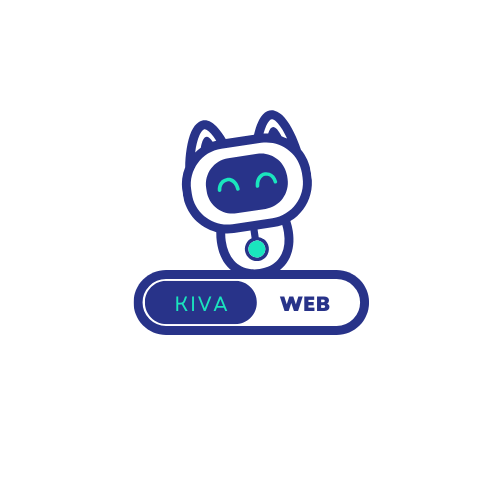Imagine walking into a classroom where robots are not just props but your classmates. Welcome to the world of an Artificial Intelligence major. This field of study doesn’t just dabble in algorithms and the occasional sci-fi fantasy: it dives into the nuts and bolts of how machines can learn, adapt, and sometimes outsmart us. If you’ve been flirting with the idea of a career in tech, this major might just be your perfect partner. Let’s unravel the enigma behind this burgeoning field, and who knows? You might just find yourself at the forefront of the next technological revolution.
Table of Contents
ToggleOverview of Artificial Intelligence Major

Artificial Intelligence, often dubbed AI, is an interdisciplinary field that merges computer science, mathematics, linguistics, psychology, and engineering. Students enrolled in an Artificial Intelligence major learn about systems that can perform tasks generally requiring human intelligence, such as understanding natural language, recognizing patterns, or making decisions. Universities offering this major provide a blend of theoretical knowledge and practical skills, ensuring students gain a comprehensive understanding of AI technologies.
The demand for AI expertise is skyrocketing, making this an appealing option for students interested in the technological landscape. With advancements in machine learning, neural networks, and deep learning, the AI major provides a robust foundation for exploring how humans and machines can work together. Universities worldwide are keenly aware of this trend, offering programs that highlight both the potential and the ethical implications of AI technologies.
Core Curriculum and Course Requirements
The core curriculum of an AI major typically encompasses a variety of subjects to provide a well-rounded education. Students start with fundamental courses in programming, data structures, and algorithms. This foundational knowledge serves as the stepping stone for more advanced topics.
Typical Core Courses Include:
- Introduction to Artificial Intelligence: This course outlines AI concepts and introduces students to basic algorithms and models.
- Machine Learning: Students investigate into various machine learning techniques, teaching machines how to learn from and make predictions based on data.
- Natural Language Processing: This subject explores how machines understand and respond to human languages, a rapidly growing field in AI.
- Computer Vision: Here, students learn how computers can be taught to interpret and make decisions based on visual data.
Beyond theoretical courses, programs often include practical components such as capstone projects, lab work, and internships. These experiences are critical as they allow students to apply their classroom knowledge in real-world scenarios, all while honing their problem-solving skills.
Skills Developed Through an AI Major
Pursuing an Artificial Intelligence major equips students with a plethora of skills that extend beyond mere technical prowess. Here are some key skills developed throughout the course of study:
- Analytical Thinking: Students learn to dissect complex problems and devise effective solutions, a key ability in both AI and various real-world applications.
- Programming Proficiency: Mastery of languages such as Python, Java, and R is central to AI studies, enabling students to develop and improve AI algorithms.
- Data Analysis: Students become adept at handling and interpreting large datasets, a vital skill in a world driven by data.
- Collaborative Skills: Many projects require teamwork, fostering collaboration and communication skills that are essential in any workplace.
- Ethical Awareness: As AI technology raises ethical questions, students learn to think critically about the implications of AI applications in society.
Career Opportunities with an AI Degree
Graduating with a degree in Artificial Intelligence opens a plethora of career paths. Here are some exciting possibilities:
- Machine Learning Engineer: This role focuses on designing algorithms that enable machines to learn and make decisions independently.
- Data Scientist: Combining statistics and programming, data scientists analyze data to uncover trends and help businesses make informed decisions.
- AI Research Scientist: Many graduates enter research roles, pushing the boundaries of what AI can achieve through innovation.
- Robotics Engineer: Engineers in this field design and build robots capable of performing tasks autonomously.
- AI Ethics Consultant: As ethical concerns grow, there’s a rising need for specialists who ensure AI systems function responsibly.
The versatility of an AI degree means graduates can find opportunities in tech firms, healthcare, finance, education, and more, truly reflecting the vast applicability of AI technologies.
Choosing the Right Program
Selecting the right program for an AI major is crucial. Various factors come into play when making this decision:
- Accreditation: Make sure the university is accredited and has a reputation in the tech community.
- Curriculum Offerings: Examine the courses provided: a well-rounded program should balance theoretical courses with practical applications.
- Faculty Expertise: Faculty research interests can illuminate what students might learn and the opportunities for mentorship.
- Internship Opportunities: Programs offering connections to industry can be incredibly beneficial as students seek to apply their knowledge in real-world settings.
- Alumni Network: A strong network can help students find job placements and industry connections after graduation.
Challenges and Considerations
While pursuing an AI major is thrilling, it’s not without its challenges. Students should consider a few things:
- Learning Curve: The coursework can be demanding, especially for those without a solid foundation in mathematics or programming.
- Rapidly Evolving Field: AI technology evolves quickly, often requiring students to continuously update their skills and knowledge.
- Job Competition: As interest increases, so does competition for job placements, urging students to differentiate themselves through skills or unique experiences.
Facing these challenges head-on can equip students with resilience, eventually providing them with tools necessary for success.
Future of Artificial Intelligence in Education
The future of Artificial Intelligence in education looks promising. Institutions are increasingly integrating AI into their curricula, offering students an enhanced learning experience. AI can help personalize education, providing tailored learning plans based on individual student needs.
Adaptive learning technologies, which analyze a student’s understanding in real-time, allow for a more customized approach to learning. Besides, as AI becomes more prevalent, educational institutions will adapt curricula to align with the evolving job market, ensuring graduates are workforce-ready.
As AI continues to reshape various sectors, including education, the demand for skilled professionals will only rise, making an AI major an attractive option for those looking to make a meaningful impact in tomorrow’s world.










